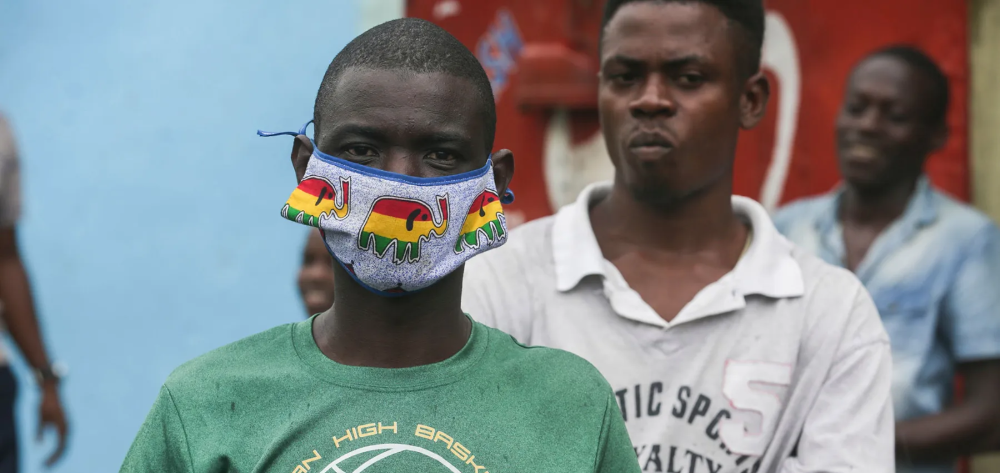
The Covid-19 Pandemia triggered a preceding global health crisis, with consistent that fell far beyond virus itself. United Nations Study conducted in Lambaréné (Gabon), published in the International Epidemiology Magazine And led by the Global Health Institute of Barcelona (ISGlobal), a center imported by the «La Caixa» Foundation, suggests that pandemic could have had an important side effect: A rebound of malaria cases in the general population.
The Sars-COV-2 pandemic affected health services, which in turn had a negative impact on the burden of several cooling. In the case of malaria, the effects were both direct and indirect. For one, The coincidence of symptoms between malaria and COVID-19 Hindered the differential diagnosis. Besides, Coinfections possibility gave rise to a greater parasitic load And more serious symptoms. By ootro side, He was interruption of malaria control programs The exhibition increased to contagion, while Delays in diagnosis and treatment They caused more serious cases and higher mortality rates. The saturation of the laboratories, the shortage of rasid diagnosis tests and the fear of infecting COVID-19 in hospitals also hindered the detection of cases of cases, according to co-authors Lambaréné Médicales Rechrherches Center: Scherif Adengnika, Yabo Josiane Honkpehedji, Bertrand Lell and Ayôla Akim Adegnika.
Malaria cases increased in 2021, exceeding the levels prior to the pandemic
«We analyzed data from two reference hospitals in Lambaréné between 2018 and 2023, applying temperature series models to examine the evolution of malaria cases before and after the start of the pandemic,» explained Reder, researcher of Isglobal and cousin author of Delera. «We use common temperature series models (Arima) in a framework of the interrupted temporary series (STIs): the combination of both approaches caused our analysis to be innovative,» adds Iris-Lopes-Lopes, a researcher at IS Global and Co-líer Deludio. Manuel HuthCo -author of the University of Bonn, also contributed to methodological development.
In the first months after the beginning of the outbreak, a Initial decrease in malaria diagnosesProbably related to Lower use of health services and changes in the behavior of the population, such as self -medication. However, a start from the end of 2021, the data reveal a Presivation and substance of casesInclusion above prepaandemics levels.
«This probablent rebound is due to Interruptions in key malaria control activitiesLike fumigation campaigns Decrease in the effectiveness of control tools which had been distributed before the pandemic, ”adds Roeder.
Several studies previously in other regions of Gabon, as well as Zambia and Gambia, in addition to the National Malaria report of the WHO, also reported increases in cases. Differentially, including information on hospital capacity and climatic variables, The analysis in Lambaréné allows us to discard in part that the increase should exclusively to factors without relationships with the pandemicas intense unusual rains or a reduction in diagnostic tests.
Pregnant women, media of protected intermittent preventive treatment
An immediate automation of malaria cases between women emarazed during the pandemic was not detectedwhich suggests that preventive measures – as the administration of prevented prevented treatment in pregnancy (IPTP) – remained a priority. Sin, Subsequent peaks were observed in the incidenceWhat a worrying result given the high danger of malaria for maternal and child health.
Study represents an important contribution within the framework of the project ORCHESTRA of the EU Horizon 2020 initiative. Their findings coincide with national and international reports that indicated an increase in malaria cases during pandemicAnd at the same time they offer a more detailed vision of local dynamics and the factors that affect the most vulnerable populations. «It is fundamental Guarantee the continuity of communicable disease control programs inclusion in times of crisis or global health emergencies«, Concludes Elisa Sicuri, responsible for the Global Health Economics Group of Isglobal and senior author of the study.
Reference
Roeder F, Adegnika Os, Honkpehedji Yj, Huth M, Lell B, Adegnika AA, Lopes-Rafegas I, Sicuri E. Malaria in the middle of the Covid-19 pandemic in Gabon: an application of integrated mobile average models Self-backs (Arima) within a series of interrupted time (its) frame of the hospital base data. Int j epidemiol. 2025 August 18; 54 (5): DyAF140. DOI: 10.1093/IJE/DYAF140.






